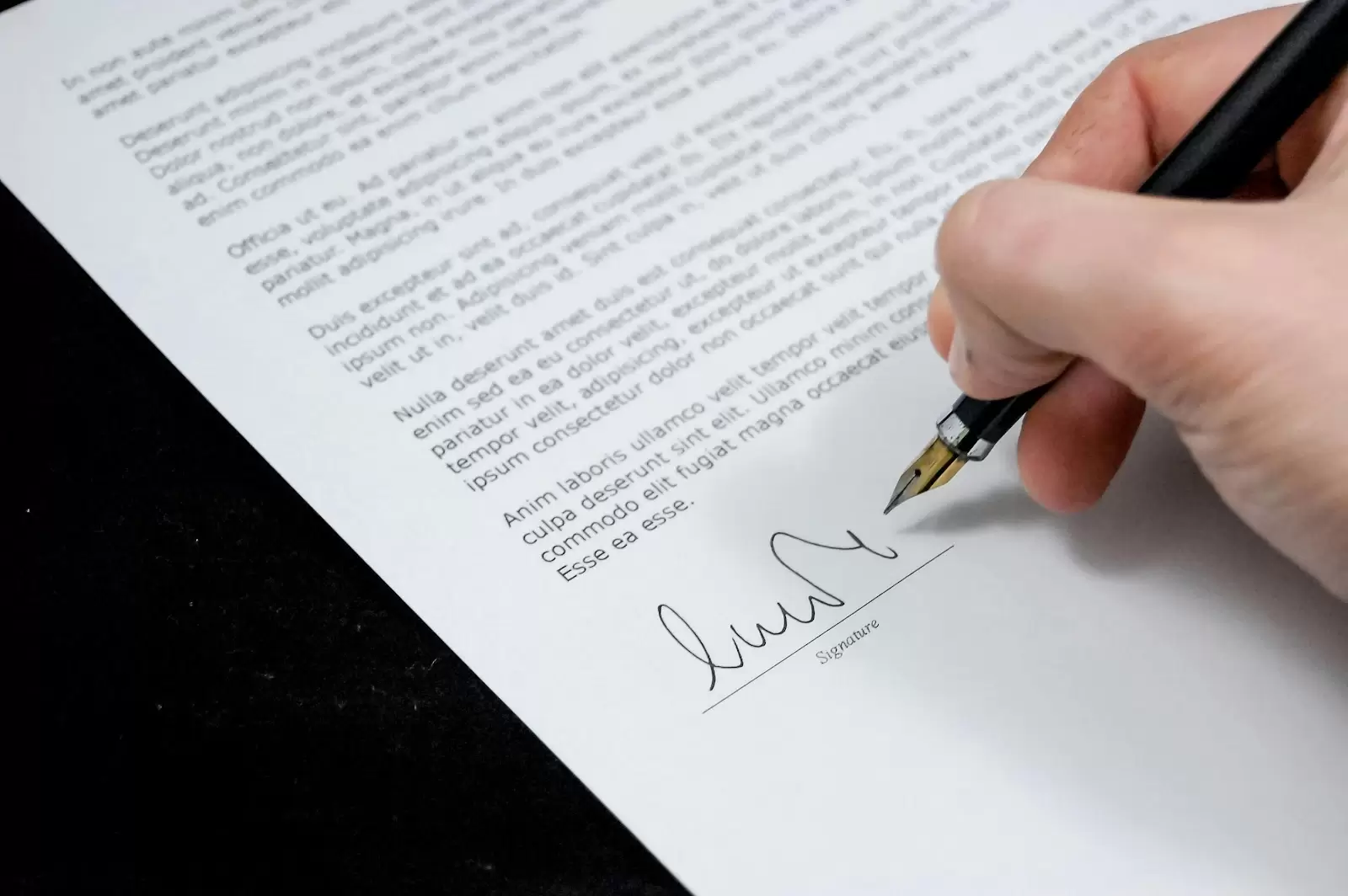How Many Estate Planning Documents Should You Have?
Life can be unpredictable. While we may not like to think about it, planning for the future is crucial. And when it comes to our loved ones and our hard-earned assets, having a solid estate plan in place offers invaluable peace of mind.
This blog delves into the world of wills, powers of attorney, and other essential estate planning documents. We'll explore what these documents do, why they're important, and how they can ensure your wishes are carried out smoothly, should the unexpected occur.
Whether you're just starting out or looking to update your existing plan, this blog series will equip you with the knowledge and resources you need to navigate the world of estate planning with confidence. Let's get started on securing your legacy and protecting the ones you love the most.

Estate planning typically involves several key documents, including wills, trusts, powers of attorney, and designations of beneficiaries.
What Is a Will?
A will is like a roadmap stating how you wish for your property and possessions (your "estate") to be shared upon your passing. It allows you to designate beneficiaries – the individuals or organizations who will inherit your assets. A well-crafted will can also name a guardian for your minor children, ensuring their well-being if you're no longer here.
What Can Be Included in a Will?
Your will can encompass various aspects of your estate, including:
- Real estate: Your homes for sale in Vancouver, condo, or any other land you own.
- Financial assets: This includes bank accounts, investment accounts, and retirement savings.
- Personal belongings: You can specify who receives specific items like jewelry, furniture, or vehicles.
- Digital assets: With the growing importance of online accounts, your will can address how to handle digital assets like email accounts or social media profiles.
The Importance of Having a Will
Having a will offers several important benefits:
- Avoids probate: Probate is a lengthy court process that determines how your assets are distributed if you die without a will. A will bypasses probate, saving your loved ones time and money.
- Ensures your wishes are followed: A will clearly outlines your desires for your estate, minimizing the risk of confusion or disagreements among beneficiaries.
- Provides peace of mind: Knowing your loved ones are taken care of offers peace of mind and allows you to focus on living life to the fullest.
Different Types of Wills
There are several types of wills, each with its own advantages and considerations:
- Simple Will: This is a basic will suitable for individuals with straightforward estates. An attorney can assist you in drafting a simple will.
- Holographic Will: A handwritten will, but specific legal requirements must be met for it to be valid (may vary by state).
- Living Will: This is a separate document from a traditional will and focuses on your medical wishes in case of incapacitation.
When to Update Your Will
Life is full of changes, and your will should reflect your current circumstances. Here are some key situations to revisit your will:
- Marriage or Divorce: Changes in marital status significantly impact your estate.
- Birth of Children: If you have minor children, you'll want to designate a guardian in your will.
- Acquisition of Significant Assets: If you inherit property or experience a significant financial gain, your will should be updated to reflect your new asset allocation.
Taking the time to create a will is a thoughtful gesture for your loved ones. It ensures your wishes are respected and eliminates unnecessary stress during an already difficult time.
What Is a Power of Attorney?
A POA is a legal document that grants another person (your "attorney-in-fact") the authority to act on your behalf in specific matters. It's like giving someone the keys to your metaphorical castle, allowing them to manage your finances, property, or healthcare depending on the type of POA established.
There are different types of POAs, each tailored to address specific situations:
- Financial Power of Attorney: This POA authorizes your attorney-in-fact to manage your finances, including paying bills, accessing bank accounts, and making investment decisions.
- Medical Power of Attorney: This POA empowers your attorney-in-fact to make medical decisions on your behalf if you're unable to do so. This may include consenting to medical treatments, choosing a care facility, or speaking with doctors.
- Durable Power of Attorney: A "durable" power of attorney remains effective even in the event of your incapacitation, unlike a regular power of attorney that ends upon incapacitation.

While a will and power of attorney are crucial, a well-rounded estate plan may include additional documents like beneficiary designations and living wills, depending on your needs.
What Can a POA Do?
The specific powers granted to your attorney-in-fact depend on the type of POA you create. However, some common actions a POA might permit include:
- Managing your bank accounts and paying bills.
- Selling or managing real estate.
- Accessing and managing investment accounts.
- Making medical decisions, including consenting to treatments or procedures.
Choosing the Right Person for Your POA
Selecting the right person for your POA is a critical decision. Here are some qualities to consider:
- Trustworthiness: Choose someone you completely trust to act in your best interests.
- Financial Acuity: For a financial POA, select someone with sound financial judgment.
- Medical Knowledge: If you create a medical POA, consider someone who understands your medical values and preferences
- Communication Skills: Effective communication between your attorney-in-fact and healthcare providers is essential.
- Willingness to Act: Ensure the person you choose is willing and able to take on this responsibility.
Why You Need a Power of Attorney
Having a POA offers peace of mind, knowing that your affairs will be handled according to your wishes if you're unable to do so yourself. It alleviates stress for your loved ones during a challenging time and ensures your well-being is protected.
Beyond Wills and Powers of Attorney: Essential Estate Planning Documents
While wills and powers of attorney are cornerstones of estate planning, a comprehensive plan encompasses several other important documents. Let's explore some additional tools to ensure your wishes are carried out seamlessly:
Beneficiary Designations
These designations are often overlooked but can significantly impact your estate plan. Retirement accounts and life insurance policies allow you to name beneficiaries – the individuals or entities who will receive the assets upon your death. By designating beneficiaries directly on these accounts, you can bypass probate, expediting the distribution of these assets.
Living Wills/Advance Directives
These documents focus on your medical wishes in the event of incapacitation. A living will outline your preferences for medical treatments, such as life support or artificial respiration. An advance directive can encompass a broader range of medical decisions and may appoint a healthcare proxy to make choices on your behalf if you cannot communicate them yourself.
Having a living will and/or advance directive ensures your medical wishes are respected and eliminates the burden of difficult decisions from your loved ones during a stressful time.
Remember: These are just some of the additional documents that can strengthen your estate plan. Consulting with an estate planning attorney is crucial to determine the specific documents you need and ensure they are properly drafted and legally valid.
Conclusion
While estate planning may not be at the forefront of everyone's mind, it's a crucial act of foresight that benefits both you and your loved ones. Having a will, powers of attorney, and other essential documents in place ensures your wishes are known, minimizes confusion, and empowers your loved ones to act on your behalf during challenging times.
Consider this blog a starting point for your estate planning journey. Remember, consulting with an attorney is essential to create a personalized plan that reflects your unique circumstances and guarantees its legal validity. By taking these steps, you can achieve peace of mind, knowing your legacy will be handled according to your wishes.
FAQ
1. Do I really need a will?
Even if you have a modest estate, a will is highly recommended. It ensures your wishes are followed regarding asset distribution and avoids probate, a lengthy court process. A will also allow you to designate guardians for minor children.
2. What's the difference between a will and a power of attorney (POA)?
A will outlines the distribution of your assets upon your passing, while a power of attorney (POA) designates someone to make decisions for you if you are unable to do so while alive. POAs can cover financial matters, healthcare decisions, and specific scenarios.
3. Are there different types of wills?
Yes, there are several types of wills. A simple will is suitable for straightforward estates. A holographic will is handwritten (but specific legal requirements must be met for validity). Living will address your medical wishes in case of incapacitation, separate from a traditional will.
4. Besides a will and POA, what other estate planning documents should I consider?
Beneficiary designations for retirement accounts and life insurance allow you to name who inherits those assets directly, avoiding probate. Living wills/advance directives outline your medical wishes in case of incapacitation, ensuring your preferences are known. An estate planning attorney can advise you on the specific documents needed for your situation.
